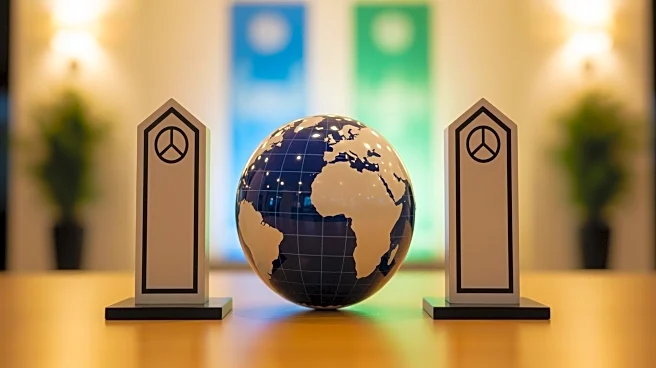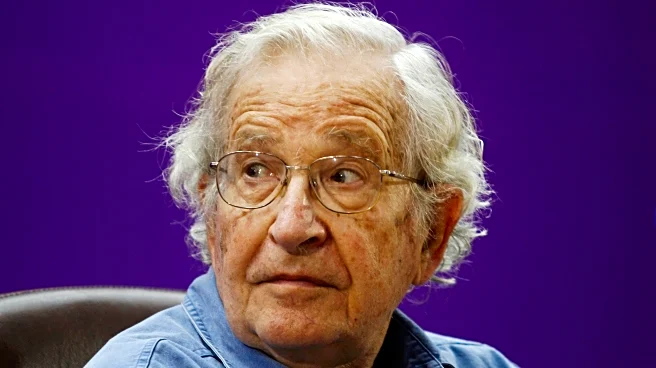What's Happening?
Cambodia and Thailand have agreed to move towards resolving their longstanding border dispute, with President Trump playing a key role in mediating the conflict. The agreement was signed in Kuala Lumpur,
Malaysia, with the presence of Malaysian Prime Minister Anwar Ibrahim. This development follows a cease-fire brokered by Trump and Ibrahim in July, which ended a five-day conflict between the two nations. The agreement, termed the 'Kuala Lumpur peace accords' by Trump, marks a significant step towards peace, although challenges remain in defining the border and managing nationalistic sentiments.
Why It's Important?
The resolution of the Cambodia-Thailand border dispute is significant for regional stability in Southeast Asia. It demonstrates the potential for diplomatic intervention to resolve long-standing conflicts, potentially reducing military tensions and fostering economic cooperation. President Trump's involvement highlights the influence of U.S. diplomacy in international peace efforts. The agreement could pave the way for improved relations and collaboration between the two countries, benefiting regional trade and security.
What's Next?
The next steps involve Cambodia and Thailand working on defining their shared border and addressing nationalistic emotions that could hinder lasting peace. Continued diplomatic engagement and monitoring by international stakeholders may be necessary to ensure the agreement's success. The U.S. may continue to play a role in supporting the peace process, potentially influencing future diplomatic efforts in the region.










